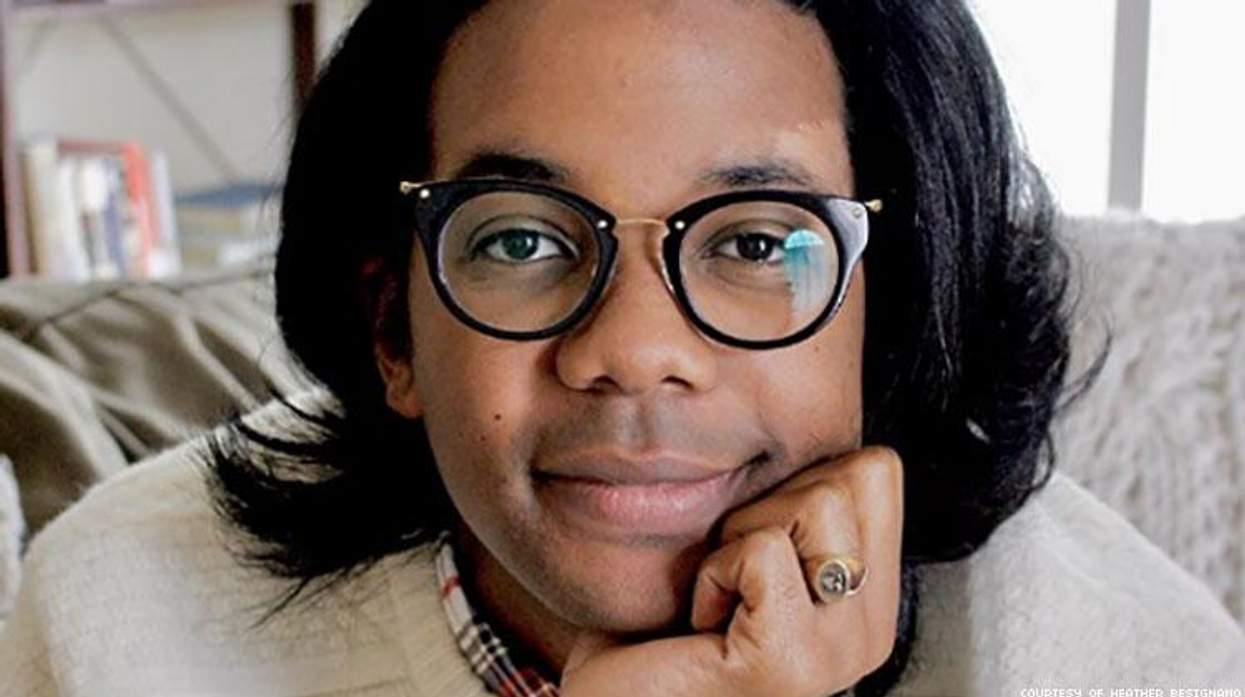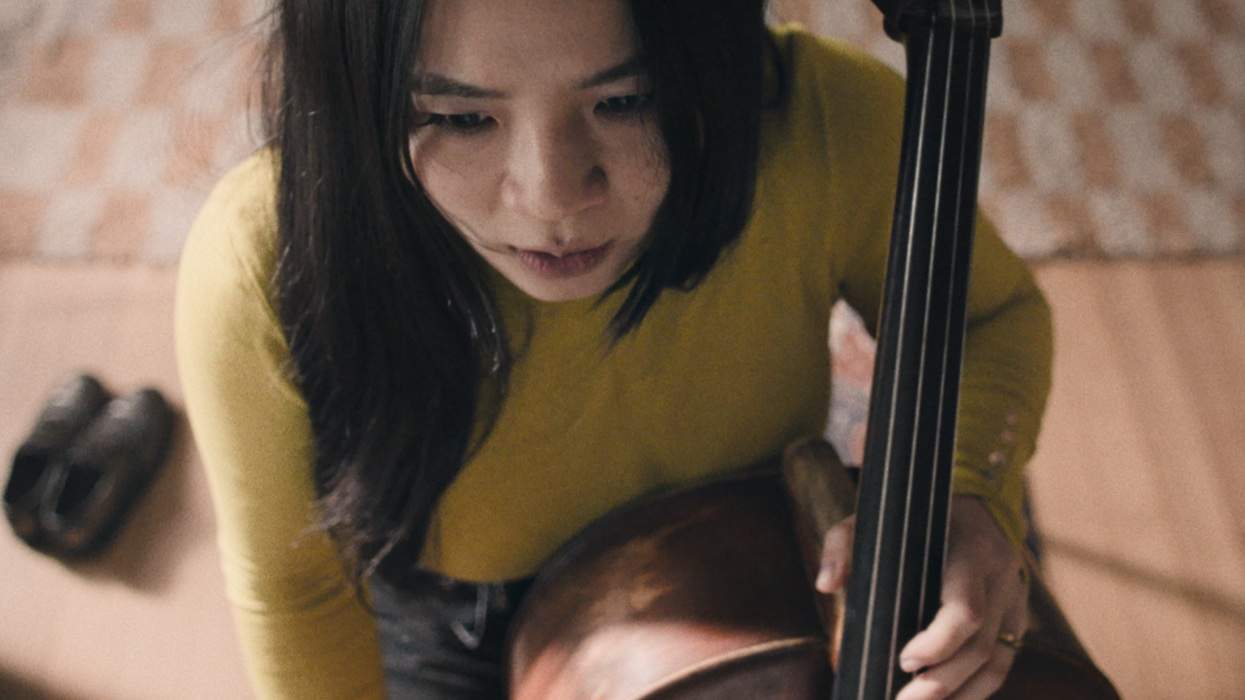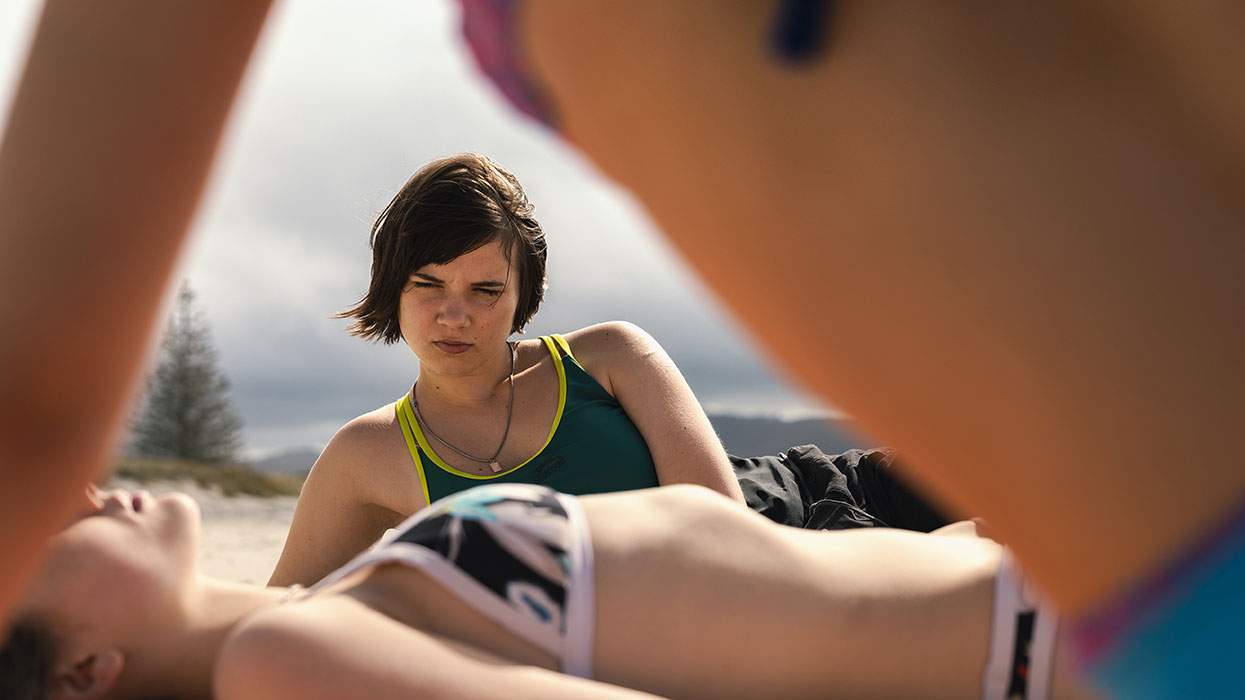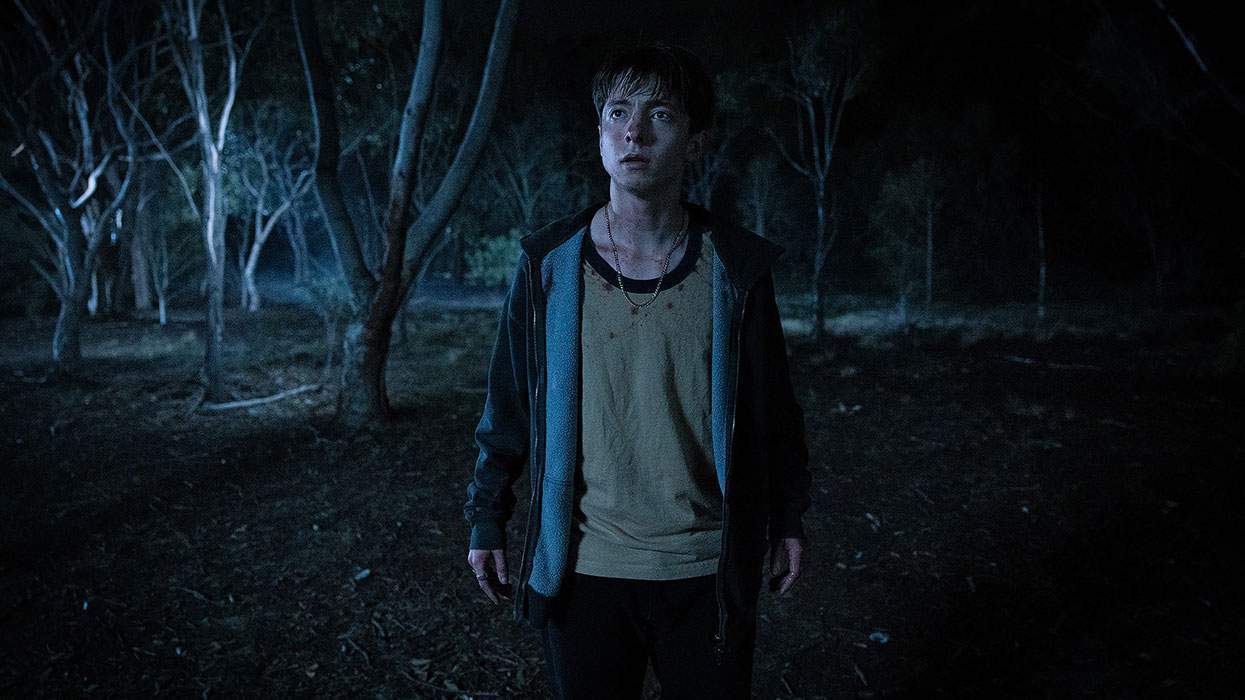There are many lessons that Clark Moore believes audiences will learn from Love, Simon, the groundbreaking new movie centered on a gay teen.
First is just how difficult coming out can be, even for those who appear to have everything. The main character, Simon Spier (Nick Robinson), has supportive friends and family members, and lives in a middle-class Atlanta neighborhood. With all of his privilege, Simon is still terrified to reveal who he is to the world.
"It shows that even when your parents are amazing ... it's still incredibly scary to open yourself up to people who love you most," said Moore, an Atlanta native himself. If anything, it is these relationships with straight people, and the fear that they may be lost or changed, that may put pressure on closeted people "to preserve the image that they have of you," he said.
"I think [the film] would make straight people understand why it's such a big deal to come out," said Moore.
It's a lesson that Moore's character, Ethan, also shares in Love, Simon. Ethan is a classmate of Simon's who is out in their high school -- and occasionally bullied for it. Although Simon is struggling in the closet, he does not confide in his queer classmate because, as he tells Ethan in one moving scene, Ethan had made being gay seem so easy. Ethan reveals that even though he is visibly queer, stylish, and confident, he has struggles of his own.
This exchange presents another lesson for audiences: The coming-out experience is not the same for all gay people, especially for those who have intersectional identities.
"The way my family responds to my homosexuality is likely going to be different than the way Simon responds to his because of race, because of many, many other things," said Moore, who is black and gay.
Moore is proud to play a teenage character who embodies those identities, which is a role he had never seen growing up. He described Ethan as a "world changer," "a guy I wanted to be in high school," and a figure who is "able to soar above the brutal bullying that he experiences." He imagined his character thinking, "No one's going to stand in my way. These kids were making fun of me? They're going to stay here in Atlanta for the rest of their lives, and I'm going to go on and do great things."
Moore can't wait for the world to meet Ethan, because he understands what he represents.
"The fact that there are little gay black boys [who] are going to see someone who looks somewhat like them, or can speak to an experience that's similar to theirs? That's huge," said Moore. "For so long, our stories and the LGBT community have been white-centric. They've spoken to an aspect of my identity, but not the full intersectionality of my identity."
Thus, Love, Simon is groundbreaking not just because it centers on a gay teen, but because it also shows a spectrum of diversity within the gay community. There is no one way to look or behave, which may help young queer people "trying to figure out who am I in the world that exists between Gus Kenworthy and RuPaul," said Moore.
"We can exist in a world where both of those people are equally important, and their experiences are equally significant and valid," he added.
Another lesson? Not all gay people want to have sex with one another -- as evidenced by the clear lack of attraction between Simon and Ethan. However, Moore acknowledged that Simon's avoidance of Ethan may also be indicative of the character's own internalized fears as a closeted man.
It's a phenomenon Moore has observed in the real world, in which members of the "closeted community" worry about "guilt by association" with out people like Ethan. "There's this fear, because they don't want to be outed inadvertently," observed Moore, which would explain why Simon falls in love with another closeted person he met through the internet, versus the out and proud man he knows and sees every day.
However, Moore also sees the mystery surrounding Simon's anonymous crush, named "Blue," as progressive. Having no idea what Blue looks like, Simon, in his search for his mystery lover, is removed from any bias regarding his background or appearance. "It doesn't even matter what [Blue] looks like. It doesn't matter what ethnicity he is, it doesn't matter if [he's] hot or if he's unattractive ... it's all about the two people connecting."
Moore himself was not part of the "closeted community" for very long in the real world. He was first bullied for being gay around the third grade, when he was called "fag" for the first time -- although at the time, he had no idea what "gay" or that slur meant. He first came out to a friend in middle school, and then came out to his parents, he estimated around ninth grade. He described them as "incredibly supportive and loving." They told him, "We always knew this.'"
"It was a magical experience. I couldn't have asked for better. It's amazing. I'm very, very lucky," he said. His friends, on the other hand, were nonchalant. "I was very much like Ethan," he recalled. "So I made a big deal about it and gathered everyone in a room. I was very dramatic. I came out to them, and they were all like ... 'Cool, Clark, we don't have much longer on our lunch break.'"
"Everyone already knew that I was gay before I came out," said Moore with a laugh, but also frustration. He hopes straight audiences, after seeing Love, Simon, learn to have more respect for a person's coming-out, rather than just brushing it off.
"When you tell someone the deep, your deepest, darkest secret, or the thing that you feel most ashamed about, or that you're struggling with the most, and their response is like, 'Oh, cool?' ... They don't validate you if they don't really see you," he said.
In reflection, Moore also sees his visibility -- even when he himself didn't see it -- as a strength. For one, he avoided a blackmail dilemma, such as the one encountered by Love, Simon's closeted protagonist.
"I've always been more stereotypically gay," Moore said. "I've always been a feminist. I've always been into musical theater and dance and performing, and drawn to female role models and female figures. So I don't think I ever was afraid of people outing me necessarily."
Even when he a student at Dartmouth College, where he studied history while acting in plays, he never let the invisible walls surrounding traditionally straight spaces keep him from, say, playing beer pong with members of the lacrosse team in a fraternity house basement. He attributed his ability to travel through different social spheres to "delusions of grandeur and extreme narcissism," which "protected me from criticism, and rejection, and all the people who make fun of you."
"My Dartmouth experience was pretty much characterized by me, a gay black man from the South, inserting myself into spaces where I knew I was less likely to be accepted," he said. But he observed the impact of his presence firsthand, when he overheard frat members instruct freshmen not to use antigay slurs. "By virtue of being in these spaces and just existing as myself, I was able to change the entire conversation for a whole generation of Dartmouth students," he marveled.
Experiences like these taught Moore the importance of visibility. An out actor and supporter of GLAAD, which fights for LGBT representaion in media, Moore appeared in Glee and an independent film, I'm Obsessed With You (But You've Got to Leave Me Alone), before landing his big break in Love, Simon. He was excited to be part of the film and its team: The production has a gay director, Greg Berlanti, as well as queer actors like Joey Pollari and Keiynan Lonsdale, who all understood its significance as the first movie centered on a gay teen to be backed by a major studio, 20th Century Fox.
"There was this sense of pride amongst all of us. We knew we were doing something very special while we were doing it. This was a project that we all would have really benefited from seeing [growing up]," Moore said.
Moore cited Berlanti as an example of a Hollywood mogul who has helped make the entertainment industry more inclusive, through hiring out actors and people of color in projects from the CW's Arrowverse to Black Lightning -- the first black superhero family on network television, which also included TV's first black lesbian superhero. "How else are black actors going to get the same kind of recognition as white actors who have regularly had access to these roles, unless someone gives them an opportunity?" Moore asked.
As an out actor of color cast as an a gay character of color, Moore acknowledged that his presence in a film like Love, Simon is even more meaningful and still too rare. "I've auditioned for countless 'gay best friend' roles ... and [productions have] pretty consistently gone with the white actor," he lamented.
And while he wishes more gay actors could have the opportunity to play gay roles, he recognized that talented straight players like Nick Robinson, the lead of Love, Simon, can also be perfect for a part. While the prevalence of gayface in the entertainment industry may rankle, Moore sees the problem as a systemic issue.
"I think that resentment that our community has toward straight actors taking our roles is that the reverse doesn't happen as frequently," said Moore, adding, "I'm less frustrated with straight actors taking gay roles and more frustrated that gay actors aren't allowed as frequently to play straight roles."
Moore also recognized that responsibility falls on the LGBT community to support films like Love, Simon at the box office. A bigger box office means more movies like Love, Simon -- and more opportunities for LGBT storylines and actors. He cited the recent success of Black Panther, whose record-breaking ticket sales may engender more productions about the black experience, as an encouraging model.
"Let's make this a hit! Let's all agree to make this amazing, so that next year there can be 10 of these and then the next year there can be 20 of these," he concluded.
"We all know the reality. If it's not successful, we don't get another option. We don't get another shot."
Love, Simon is out today. Watch the trailer below.















Charlie Kirk DID say stoning gay people was the 'perfect law' — and these other heinous quotes
These are some of his worst comments about LGBTQ+ people made by Charlie Kirk.